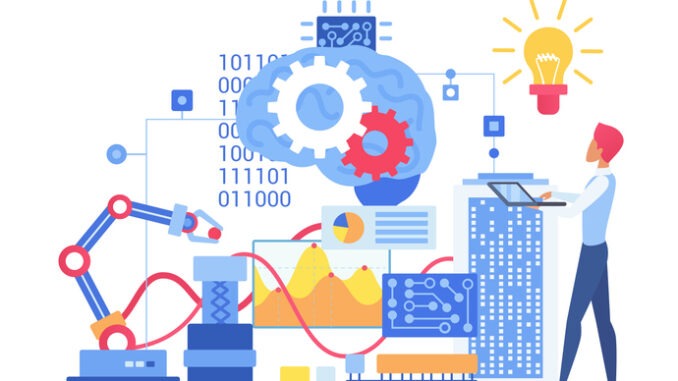In today’s rapidly evolving business landscape, the integration of AI and automation has become increasingly vital for companies striving to stay competitive in the digital market. However, understanding the distinct roles and benefits of these technologies is essential for optimal effectiveness
Understanding functionality
AI and automation play distinct roles, each serving specific functions within business operations. Automation is designed to execute predefined tasks repetitively across various activities, thereby reducing manual efforts and enhancing efficiency. On the other hand, AI functions by collecting and analysing data, identifying patterns, and employing algorithms to adapt and draw conclusions from the evidence gathered, enabling it to make informed decisions.
For dealer businesses striving to enhance their competitiveness in the digital market, recognising these differences and understanding how AI and automation these distinctions and how AI and automation can be leveraged is crucial for strategic integration and sustainable business growth.
Different benefits
Both AI and automation provide distinct advantages to businesses, each serving different purposes. Automation offers several key benefits, particularly in freeing up employees to concentrate on tasks that require human intervention. By automating repetitive tasks like data entry, report generation, and account reconciliation, businesses can optimize their workforce’s time and focus on more human-centric activities. Additionally, automation minimizes the risk of errors in rule-based tasks such as record keeping and form filling, thereby enhancing accuracy and efficiency. Automation also enables the seamless repetition of tasks across various activities, such as extracting information from sales data to generate multiple invoices and statements.
While automation aims to optimize company resources by reallocating worker efforts to different tasks, AI aims to augment and complement human-centric activities. AI emerges as a potent tool when integrated into functions such as marketing, customer relationship management, and recruitment, facilitating smarter decision-making processes and enhancing overall operational efficiency.
AI-driven analytics provide businesses with invaluable insights extracted from diverse data pools and demographics. By harnessing AI to detect trends and market shifts, businesses can swiftly respond to sudden changes, fostering agility in their operations. With data-driven decision-making, businesses can pinpoint growth opportunities and maintain a competitive edge. Additionally, AI enables personalized product recommendations, targeted advertisements, and tailored job descriptions based on its analytical findings. Another benefit of AI is in its ability to use its findings to make personalized product recommendations or provide targeted advertisements or job descriptions.
Understanding the distinction between AI and automation is crucial not only for businesses to
effectively leverage these tools, but also for effectively communicating their purpose to employees and alleviating concerns about job security. Managers should underscore the benefits of AI and automation as drivers of both business and employee advancement. These technologies streamline tasks, eliminating time-consuming chores that impede productivity, which once removed from the equation allow for innovation and growth.
By understanding the best applications for both AI and automation, businesses can gain a clearer understanding of best use of digital technologies and open opportunities to introduce new activities and roles in other areas of the business.



Be the first to comment